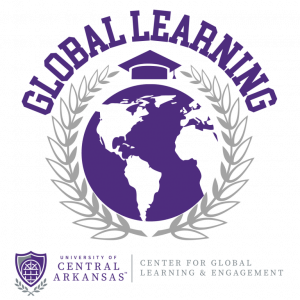 About the Institute
About the Institute
The Center for Global Learning and Engagement is again working with the Center for Excellence in Teaching and Academic Leadership to offer the sixth annual Global Learning Institute (GLI), which provides an introduction to Collaborative Online International Learning (COIL). The two-day training will be held May 18-19, 2026.
Since summer 2021, 47 UCA faculty have attended the GLI with faculty members from our international partners. As of fall 2025, UCA has trained 47 faculty in COIL methodology. Thus far, 21 COIL-trained faculty in 5 Colleges and 12 different Departments or Schools have taught a COIL for 605 UCA students since Spring 2022.
GLI participants will learn about the COIL pedagogy and strategies for designing collaborative projects aligned with the United Nations Sustainable Development Goals (#GlobalGoals). Participants also will hear from international partners and explore intended and unintended learning outcomes, assessment practices, and research opportunities.
GLI participants will receive a $100 stipend and two catered lunches. Participants are expected to attend both days and to work with an international partner during the 2026-27 academic year to implement a COIL project.
Application Process
Applications will be accepted through 11:59 p.m. Tuesday, April 14, 2026, and applicants will be notified by late-April. Submit your application online!
What is COIL?
The term COIL was coined in 2006 by Jon Rubin, who worked for the State University of New York (SUNY COIL Center).
According to Rubin (2021), “COIL utilizes the Internet to empower students and instructors around the world to develop curiosity, flexibility, and generosity in concert with their academic partners. This benefits two or more classrooms of collaborating students, usually located in different countries, who have had different life experiences. COIL is also a way for students and instructors to learn about their discipline from a new perspective and can be a method for engaging those with other experiences and perspectives about how this knowledge might be applied.”
Watch this video to learn more about COIL. To see a list of UCA COIL projects, visit this page.

